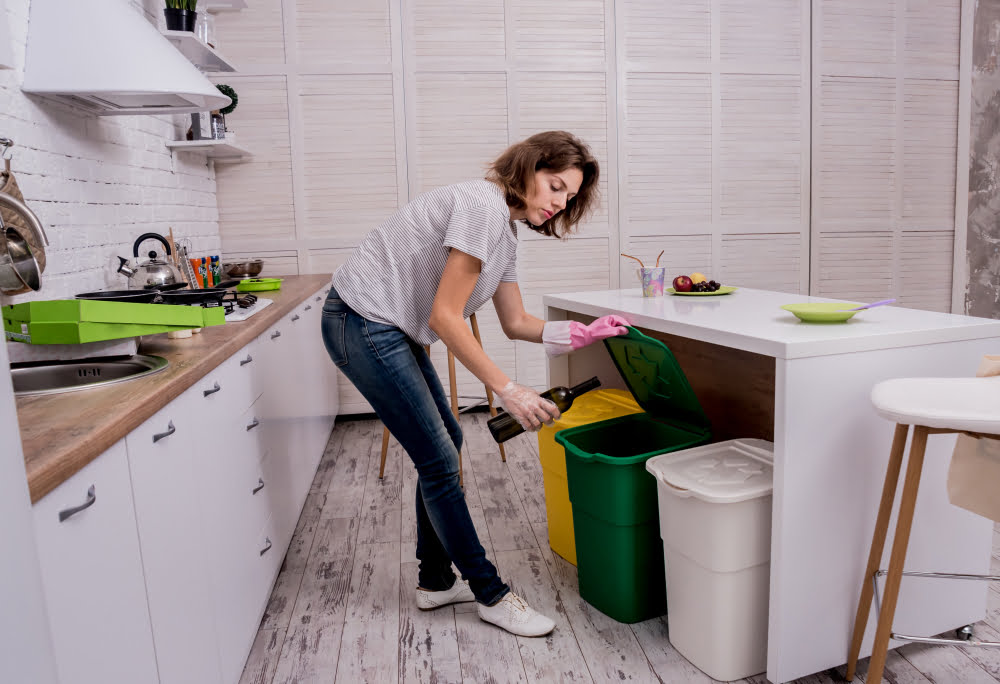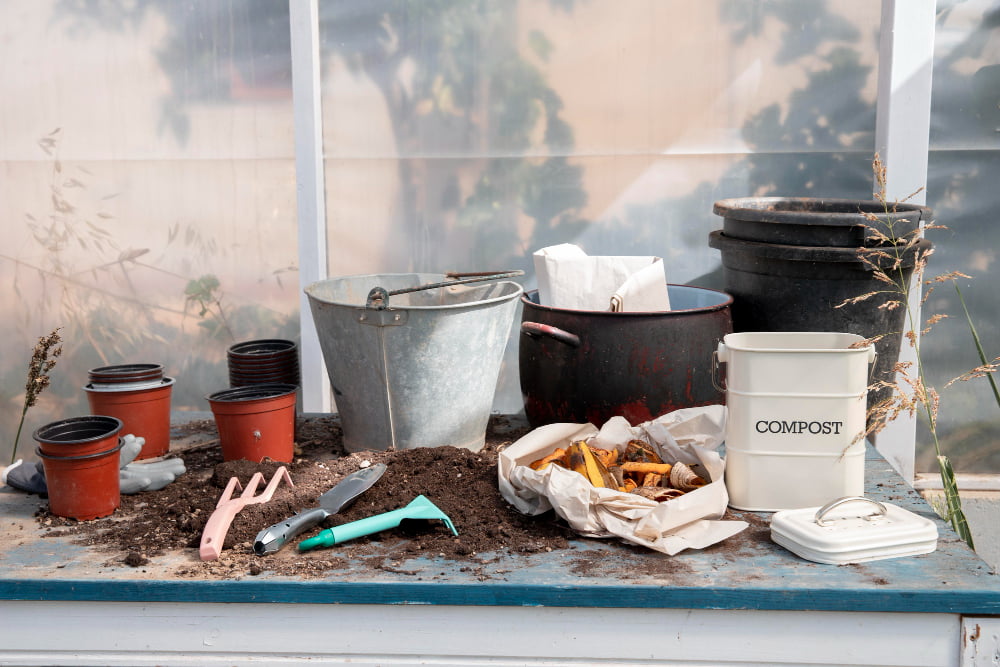Last updated on
Managing waste responsibly and embracing sustainable living practices are not just trends, but necessary steps towards preserving our environment. This guide provides insightful tips on sustainable home habits that everyone can incorporate into their daily routines.
We’ll focus on the area of waste management, exploring practical and effective strategies to minimize waste production and optimize recycling efforts. By adopting these habits, not only will we contribute to a cleaner and healthier environment, but we’ll also instill a mindset of sustainability in future generations.
The Importance of Waste Segregation

Waste segregation is the first step toward effective waste management. It involves separating waste into different categories such as organic, recyclable, and non-recyclable. This facilitates easier recycling and composting and reduces the amount of waste going to landfills.
Proper segregation also makes waste disposal safer and more efficient. For instance, separating hazardous waste prevents harmful substances from contaminating other waste and the environment. It’s a small step that can have a significant impact on waste management and sustainability.
To make waste segregation a habit, start by setting up separate bins for different waste types. Label the bins clearly and educate all members of the household on the importance and benefits of waste segregation. With the help of a reliable rubbish removal service, you can ensure that the segregated waste is collected and disposed of correctly. Also, take the time to research and understand your local waste management regulations, as they may differ from place to place.
Reducing Single-use Plastic
Reducing the use of single-use plastic is another integral aspect of sustainable waste management. Single-use plastics, such as grocery bags, straws, and water bottles, contribute to a significant portion of landfill waste and ocean pollution. By opting for reusable alternatives, we can drastically cut down on plastic waste. Consider using cloth grocery bags, metal straws, and reusable water bottles. These alternatives are not only eco-friendly but also economical in the long run.
When shopping, try to buy in bulk to minimize packaging waste. If disposable plastic items are unavoidable, look for biodegradable or compostable options. It’s all about making conscious choices to reduce our environmental footprint. Additionally, make sure to properly dispose of any plastic waste that cannot be avoided, such as food packaging or hygiene products.
Composting Organic Waste

Composting is a natural process that turns organic waste into nutrient-rich soil. It’s a fantastic way to recycle kitchen waste like vegetable peels, coffee grounds, and eggshells. Not only does composting reduce the amount of waste going to landfill, it also enriches the soil in your garden.
Starting a compost pile at home is relatively easy. You’ll need a compost bin or a designated outdoor space for your compost pile. Make sure to maintain a balance of green (fruit and vegetable waste) and brown (leaves, paper, or wood) materials in your compost.
Remember, composting is an ongoing process. It takes time for the organic waste to break down, so patience is key. Once ready, the compost can be used to enrich the soil in your garden or potted plants. Not only does this reduce waste, but it also eliminates the need for chemical fertilizers.
Embracing a Zero-waste Lifestyle
The ultimate goal of sustainable waste management is to adopt a zero-waste lifestyle. This involves rethinking our consumption patterns and making lifestyle changes to minimize waste production.
Embracing a zero-waste lifestyle means prioritizing reusable over disposable, buying only what is necessary, and opting for items with minimal packaging. It’s not about perfection, but progress – every small step counts.
Also, consider donating or selling items you no longer need instead of discarding them. Repurpose items where possible, and repair instead of replace. A zero-waste lifestyle not only contributes to a cleaner environment but also leads to a simpler and more mindful way of living. Keep in mind that reducing waste is a continuous effort, and every little change makes a difference.
Not only are these sustainable home habits good for the environment, but they also have a positive impact on our health and well-being. By managing waste responsibly, we can create a cleaner and healthier living space for ourselves and future generations.
Embracing a zero-waste lifestyle means prioritizing reusable over disposable, buying only what is necessary, and opting for items with minimal packaging. It’s not about perfection, but progress – every small step counts.
Also, consider donating or selling items you no longer need instead of discarding them. Repurpose items where possible, and repair instead of replace. A zero-waste lifestyle not only contributes to a cleaner environment but also leads to a simpler and more mindful way of living. Keep in mind that reducing waste is a continuous effort, and every little change makes a difference.
Not only are these sustainable home habits good for the environment, but they also have a positive impact on our health and well-being. By managing waste responsibly, we can create a cleaner and healthier living space for ourselves and future generations.
The Takeaway
Adopting sustainable home habits is a powerful and practical way to contribute to a cleaner environment and promote sustainability. From segregating waste to reducing the use of single-use plastics, composting organic waste, and striving for a zero-waste lifestyle, each of these strategies plays a significant role in responsible waste management.
By implementing these tips into our daily routines, we can make a positive impact on our environment and pave the way for a greener, healthier future for ourselves and generations to come. Remember, every small step towards sustainability counts and can make a considerable difference. It’s our collective responsibility to care for our planet.
Recap:



